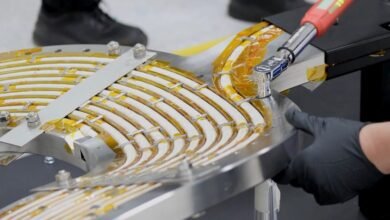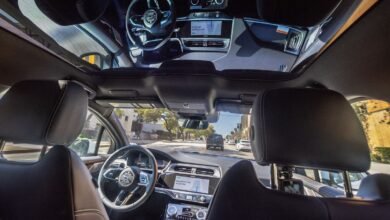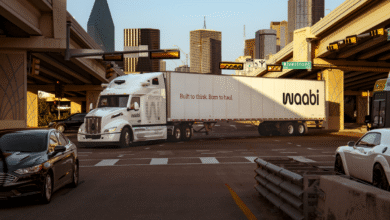Lyft & May Mobility Launch Robotaxi Service in Atlanta

▼ Summary
– Lyft and May Mobility have launched a commercial robotaxi service in Atlanta via the Lyft app, marking their first joint deployment.
– The initial pilot involves a small fleet of hybrid-electric Toyota Sienna vehicles with human safety operators and limited operating hours.
– This move is part of Lyft’s strategy to compete in the robotaxi market, though it trails behind rivals like Uber and Waymo.
– Lyft has additional robotaxi partnerships planned with Baidu in Europe and Mobileye in Dallas, despite past setbacks with Motional and Argo AI.
– May Mobility operates similar services in other locations, including a driverless microtransit service in Peachtree Corners, Georgia.
Atlanta residents now have a new way to get around town, thanks to a fresh collaboration between Lyft and May Mobility. The ride-hailing platform has integrated May’s autonomous vehicles into its app, allowing users to book a robotaxi with just a few taps. This marks the first commercial rollout under the partnership and represents Lyft’s latest push to gain a foothold in the competitive autonomous vehicle sector.
Despite the promising start, Lyft faces an uphill battle against rivals like Uber and Waymo, both of which have already established significant autonomous ride-hailing operations. Earlier this year, financial analysts expressed skepticism about Lyft’s ability to compete, especially as Waymo expanded in California and Uber pursued an aggressive self-driving partnership strategy. However, Lyft’s stronger-than-expected second-quarter earnings have since improved market sentiment, and the launch of this new service could help maintain that positive momentum, even if the initial scale remains modest.
For now, the pilot involves a limited number of hybrid-electric Toyota Sienna vehicles equipped with May’s autonomous technology. These cars will operate during weekday morning and afternoon hours in Midtown Atlanta, with a human safety operator present in the driver’s seat at all times. Riders can access the service through Lyft’s on-demand or Wait & Save options. The companies have indicated plans to gradually expand service into evenings, weekends, and eventually other cities, scaling from dozens to thousands of vehicles over time.
This isn’t Lyft’s first foray into autonomous vehicles. The company previously partnered with Motional in Las Vegas and Argo AI in Austin and Miami, though both ventures ultimately faltered. Argo AI shut down in 2022, costing Lyft a $135.7 million writedown, while Motional paused its collaboration earlier this year after significant layoffs. In contrast, Uber has built a broad network of more than 20 global autonomous vehicle partners and already facilitates millions of automated trips annually across its ride-hail and delivery segments.
May Mobility, which also works with Uber, is no stranger to deploying autonomous technology. The company already operates a small driverless microtransit service in Peachtree Corners, Georgia, and runs commercial AV services with safety drivers in several other U.S. cities and Japan. Its approach typically involves geofenced areas and predefined routes, making dense urban environments like Midtown Atlanta a logical next step.
Looking ahead, Lyft has additional autonomous vehicle partnerships in the pipeline, including a planned expansion into Europe with Baidu and a collaboration with Mobileye aimed at deploying thousands of self-driving vehicles in Dallas and other markets by 2026. For now, though, the focus remains on proving the viability, and safety, of this new service in the heart of Atlanta.
(Source: TechCrunch)





